The Wintree Waltz

Chapter 1
At 9 a.m., the house was empty. The morning light crept in where it could, squeezing through the vertical blinds in the kitchen, underneath the summer draperies in the living and dining rooms, and causing the panel of stained glass on the front door to glow. In the center of the dining room table sat a teapot, newly rescued from the Treasure Mart. A treasure indeed. It was porcelain and gold-etched, and stained on the inside from many years of use. On its lid sat a gold fairy whose wings had long ago broken off; without them, she resembled an amused woman, her head cocked coquettishly, her chin resting in her palm.
To Elaine, who had spotted the teapot on a high shelf at the crowded store, the fairy looked like someone. Whom? Herself as a younger woman? One of her daughters? A friend she had had once?
And then, she remembered:
“My grandmother had one just like it,” she excitedly told her daughter when she’d brought the teapot home.
“Cool,” her daughter had said, grabbing an apple from the kitchen and walking away.
“Let’s have some,” Elaine had said, holding up the teapot as an offering.
“I have to go,” Erin, her beautiful youngest daughter said. She was always having to go.
And so the teapot just sat there, unused, all through the weekend and on Monday too, when all the residents of the Wintree home passed it on their way out the door:
Edmund, to his Monday morning golf foursome.
Elaine, to the animal shelter where she volunteered four days a week.
Jean, into the woods, to shoot photos for an art project before opening Retna, the photography shop where she worked.
And Erin, to her first day at her new job as a barista at Mighty Good Coffee.
Clara, the eldest daughter, who lived in an apartment in Kerrytown, did not pass the teapot that morning, but should not be left out. She is as much a part of the family as the Wintree dogs – Barney, an aging golden retriever, and Feisty, the three-legged terrier that Elaine insisted she was fostering, not adopting – and the cats, who came and went as they pleased through the dog door in the kitchen.
It was just about summer. Soon, the trees that had just dropped their blooms would explode with the greens of maple and oak, and glow like emeralds in the afternoon sun.
Now, today, in an old Subaru handed down from her sister, Jean changed out of her hiking boots and into her ballet flats. She took off her hat and ran a hand through her hair, teasing her bangs in the rearview mirror. There hadn’t been time for tea that morning and so she’d have to move through her day, or at least the rest of the morning, unaided. This would be difficult any day, but lately it felt impossible. She had been getting up early and working late all that spring, going out into the woods to photograph the season as it unfurled each day – the snow melts of March, the muddy swells of April, the ripening of May.
She shot from sunrise until just before she had to open the shop. Most days, she’d stop at Mighty Good and grab a cup of tea to warm up before walking down the street to open Retna, where she’d sit behind the counter until her relief showed up at 3. Afterwards, Jean would spend the rest of the day in her studio, a repurposed shed behind her parents’ house, paging through the hundreds of photos she’d shot each day, digitally correcting her favorites, and then choosing one photo a week to be printed on heavy, untreated paper. She would then paint over her photos, sometimes adding elements (a cardinal in a tree, a line of marching ants), other times she’d simply enrich the color of the original shot with hues of blue, brown, yellow, grey and green. Jean wasn’t sure what these images would become, or how the project might evolve. But she worked on them until about 8 every night, until it was time to sleep so she could wake up in the morning and do it again.
In a few weeks, the project would end with the season. Then, a new project: a summer wedding, where she, inexplicably, was the bride. There was much to do, and she and John both had been largely distracted – Jean with her photos, and John with his last, grueling, year of medical school. So John’s mother had booked the caterer, compiled the guest list and selected the place settings, while bride and groom submitted themselves to the process the way a patient might undergo a procedure, silent but willing.
~ ~ ~
They had met only the year before, when John came into Retna to find a lens for his Nikon.
She didn’t notice him, not the way she had noticed her ex when they first met at an NYU bar that sold cheap and sudsy beer. John was just a customer, a guy with a good camera who didn’t know how to use it.
“I don’t like to carry a lot of lenses,” he said. “I just want one lens that can do everything.”
“What do you mean by everything?” she asked.
“I want it to be able to do what my eye does.”
“Ah,” she said, all well knowing the frustration. There was not a single camera lens that could do everything. There was nothing that could duplicate the magic of the human eye.
“The kit lens you have is good,” she said of the 24-85 mm lens that had come with his camera. “If you want something with more of a zoom, you can get this 28-300 millimeter,” she said, bringing the lens out of the case and handing it to him.
“It’s heavy,” he said, feeling the weight of it with his hand.
“There’s a lot of glass in that lens.”
“Do you have anything lighter?”
“Have you considered getting an iPhone?” she said, with a smirk she didn’t try to hide.
“Seriously, though. This is it?”
“That’s your do-it-all lens, yes.”
“Can you show me how to use it?”
She took his camera, detached the kit lens and slid the 28-300 mm into place. As she went over the finer points of aperture and shutter speed, she realized that he was watching her, but not paying attention.
“How’d you learn all this?” he asked.
“I was a photography major at NYU.”
“What do you do now?”
“Now I work here,” she said, not wanting to divulge anything else about herself – her work, her striving, the fact that she lived in her parent’s attic.
“You didn’t say ‘what about you,’” he said as she ran his credit card through to complete his purchase.
“What?”
“I’m a med student, third year.”
“Okay,” she said. She was used to these types, the unprompted braggarts.
“Do you want to have dinner with me sometime?”
“Sorry,” she said. “I have a boyfriend.”
Only she hadn’t, not anymore. And when John came in a second time, to exchange the lens for something that would do better in lower light, he asked her again to dinner and this time she said yes.
They went to dinner that night, at an eccentric French-Taiwanese place that served spiced frog legs in coconut broth and lemongrass escargot. The food was interesting but unfulfilling and they ended their date at Blank Slate Creamery, eating sundaes out of waffle cones. The Ann Arbor Art Fair was underway and they walked through it, more interested in each other than any of the artwork on display.
“I’d like to show here one day,” she told him. “When I came back from New York I thought I’d do better here, in the smaller pond of Ann Arbor, but… even here it seems you have to first be somebody in order to display your work. They don’t want unknowns.”
“How does one become known?” he asked.
Jean shook her head. “All I know is to keep working. The work is all I can control. Everything else… I leave up to fate.”
“I admire that,” he said. “In med school, you keep working and then, if you work hard enough, you become something.”
“Right,” she said. “With art, there’s no assured path.”
“But it’s more fulfilling. More exciting.”
“I guess that depends on what you find exciting. What kind of things do you want to shoot? With your camera, I mean.”
“Birds,” he said. “I want to shoot birds.”
With this, he’d piqued her interest. Most people didn’t notice birds much less want to photograph them.
“Maybe we can go for a hike sometime,” she said, “I can give you a lesson.”
“Really?” He took her hand and spun her around so she was looking at him.
“Sure,” she said with a shrug and added, “no big deal.”
But it was a big deal because it’s where they began.
And now they were here – they were getting married! This should have excited Jean but instead it terrified her. He proposed in front of her parents on Christmas morning. There was the tree and the lights and the coffee spiked with eggnog. There was a big, sparkling diamond and before she could think, she found herself saying yes. And then there were mothers, and dresses to choose and try on, and cakes to taste. She had blinked and she was engaged. She would blink once more and would be a bride. She was almost afraid to blink a third time, to think of what would come next. But John assured her that she could have the life she wanted, that she could be and do anything. So long as she was his wife. That he would stand beside her, so long as she stood beside him.
~ ~ ~
Behind the counter at Retna, Jean flipped through one of the bridal magazines John’s mother had dropped off there for her the week before along with a list of the things that still had to be decided:
Flowers – Centerpieces! Bouquets! Boutonnieres!
Drinks – Are you having a signature cocktail or not??
Food – We still need to finalize things with the caterer. Let’s meet for lunch soon.
YOUR CAKE – Really, Jean. Just pick something already or I’m going with lemon coconut and I know how much you hate coconut!
She was reading about the 19 types of bridal bouquets, when her sister Erin walked through the door, a coffee in each of her hands.
“Bless you!” Jean said, accepting the coffee.
“It’s my first attempt at a pour-over,” Erin said. “There are way too many ways to make coffee now.”
“Oooh, pretty!” Erin said, pointing to a posy bouquet of pink peonies in Jean’s magazine.
“’Pink peonies are the height of feminine sophistication,’” Jean read, a tinge of sarcasm in her voice.
“So feminine! So sophisticated!” Erin said, holding her coffee out in front her and taking a bride’s slow steps.
“I have to pick something, like, yesterday,” Jean said of the flowers.
“What are our colors again?”
“I’m wearing white. You’re wearing Contemplative Ocean.”
“Just do white roses.”
“Fancy wants something that pops,” Jean said, using her nickname for John’s mother.
“I saw a wedding on TV once where the bride carried a bouquet of half lemons. That would pop.”
“Ew! What a bitter start. I’d rather carry a bouquet made from little sugar packets!”
“Or maybe just a jar of honey?”
“Now you’re talking!”
The girls erupted in laughter and Jean threw the magazine across the room.
“Take that, Fancy Nancy!”
“You’re so lucky,” Erin said after a while. “I’d kill for a guy like John.”
“You’re twenty. You’ll have plenty.”
“John’s special though.”
“He is,” Jean agreed. “His mother, however, is a piece of bloody work!”
As if on cue, Nancy walked through the door.
“Nancy!” Jean said, standing straighter than she had been.
“How are you dear?” Nancy said, stepping over the magazine and walking toward the sisters.
“Good,” Jean said. “You remember Erin.”
“Of course,” Nancy said, offering Erin a thin smile.
“To what do we owe the pleasure?” Jean asked.
“I made us an appointment with the caterer for today at three. It’s the only time he could do it. I hope you can make it.”
“I don’t leave here until three.”
“That’s fine,” Nancy said. “You can be a few minutes late.”
~ ~ ~
The caterers used to run a small restaurant in town, but closed it once they had kids. They now ran a busy catering business out of their small, west side home while their kids ran wild through the house and yard.
Jean had visited with John once before to discuss the menu, but nothing had been decided.
“So today’s the day!” Davis said, plunking a menu down in front of Jean. “We’ll do a selection of four different canapés alongside a selection of three cheeses and seasonal fruit during the cocktail hour.
“Then, a soup – either vichyssoise or asparagus – and then a seated dinner.”
“Okay,” Jean said, looking not at Davis but Nancy.
“I love a vichyssoise!” Nancy said. “It’ll be perfect for July.”
“Then an option of either pork, salmon or a mixed mushroom sauté for the vegans.”
“Are there many vegans?” Nancy asked, looking as though she had just tasted something awful.
“A few,” Jean said, and added, “My sister Clara’s a vegan.”
“Oh,” Nancy said with a sharp shrug.
“It’s very common now to offer a vegan option. And of course all of the sides will be vegan.”
“Will the vichyssoise also be vegan?” Nancy asked, incredulously.
“I’ve yet to find a vegan vichyssoise that I like,” Davis said.
“Neither have I,” Nancy said, satisfied.
“So let’s taste!” Davis said, clapping his hands. With that, his wife Donna brought out a tray with two plates and two small glasses of vichyssoise.
After they tasted everything, and agreed upon the menu, Davis brought out a tray of six different cocktails.
“Now, I know you haven’t settled on an accent color yet, but I figured maybe these cocktails might provide some inspiration. Here we have a blood orange gin sparkler, a hibiscus prosecco, and a green tea gimlet with citrus syrup. That covers the bride’s love of gin and prosecco,” Davis said, nodding to Jean. “For John, we have a lemon shandy, and an Arnold Palmer spiked with vodka. Lastly, we have an iced jasmine tea sweetened with blackberry syrup, which is non-alcoholic.
“So!” Davis continued, “You have your pink, your green, your purple, your yellow and your red. I’ll leave it to you ladies to taste.”
As Davis spoke, Jean nervously turned her engagement ring around on her finger. It was a nervous tick she didn’t realize she had: she’d turn it around and around and sometimes take it off and try it on different fingers. She hadn’t eaten much that day besides the food they had tasted, and was afraid of getting bombed with her mother-in-law.
Still, she tasted: first the blood orange sparkler, because she liked the color, and then the green tea gimlet, because she was curious. Then, the hibiscus prosecco, which she didn’t love, and the shandy, which she found refreshing.
“What do you think dear?” Nancy asked.
“I like the orange,” she said, “and the shandy.”
“I don’t like the idea of having beer as a signature cocktail,” Nancy said of the shandy. “And you’re right. The red will pop nicely against your blue bridesmaids dresses. Blood orange it is!”
~ ~ ~
“What’s a canapé anyway?” Elaine asked Jean that evening. They were sitting in the kitchen, around a pot of Kukicha, a Japanese green tea that Elaine promised Jean would give her just enough energy to get through her day and wouldn’t keep her up that evening. The alcohol had gone straight to her head and she came home ready for bed.
“It’s just a small hors d’œuvre, like a mini quiche or smoked salmon on a crustini.” Jean said.
“My daughter’s getting fancy!” Elaine said, pointing her pinky in the air for emphasis.
“I feel a bit…out of my league,” Jean confessed. “Nancy is very…sophisticated.”
“Is ‘sophisticated’ a new word for bitchy?” Elaine asked.
“Mom!”
“I’m sorry dear… and I think it’s a front. She’s a person like anyone else. You just have to get to know her. Wait for her to drop her guard.”
“How can I do that?”
“Become her friend. Try to. And don’t let her know that she intimidates you. Women like Nancy Birnbauer thrive on intimidation.”
“Can I confess something?”
“Of course!” Elaine said, taking her daughter’s hand.
Just then, there was a knock on the door. Elaine gave Jean a side-glance before rising to answer it.
“Mrs. Birnbauer!” she said. “What a surprise! Come in!”
“Jean left this at the caterer’s,” she said, proffering Jean’s engagement ring between her thumb and forefinger.
“I didn’t even realize it was missing,” Jean said, a little embarrassed. She slipped the ring back on her finger.
“You have a habit of twisting it around your finger, of taking it off and putting it back on,” Nancy said, looking down at Jean. “You really must be more careful. It’s insured but irreplaceable.”
“Sit down and have some tea with us,” Elaine offered.
“No thank you. I have to get back,” she said. “I’m sure I’ll see you both soon.”
And with that, she was gone.
“Do you think she heard us?” Jean whispered.
“Of course not!” Elaine said. “The windows were closed.”
“She’s always turning up at the worst times. I don’t know how John stands it.”
“Like all men, he’s probably blind with love for his mother. As all kids should be,” she said with a wink. “Now what were you going to tell me, dear?”
“Nothing…” Jean said with a sigh.
~ ~ ~
After tea, Elaine moved into the kitchen to prepare dinner, Jean went into her studio to sort through her photos from the day, and Erin emerged from her bedroom, exhausted from an afternoon of studying. She had changed majors twice now – from engineering to biology to movement science – and was taking a summer course to catch up. She knew the course would be condensed but hadn’t realized the workload she was taking on. She was already working at Mighty Good and volunteering twice a week in UM’s Occupational Therapy Clinic. Erin had started volunteering ostensibly because it would help her chances of getting into a good grad school. Secretly, though, she did it because she had a small – tiny! microscopic! – crush on her sister’s fiancé. And so when he suggested that she volunteer, she jumped at the chance. Now that she was working and volunteering and going to school, she was beginning to regret her decision. Plus, she never even saw John; his clinicals had him rotating around the hospital, and never toward her.
Erin sat down at the dining room table and felt the teapot to see if the tea was still warm. It was, and she poured herself a cup of the bright green elixir.
Erin smelled the tea and drank it. It was mild, grassy, slightly bitter. She poured herself another cup and drank it down.
Within seconds, she heard her sister’s voice: Can I confess something?
“What?” Erin asked, turning in her chair. She expected to find her sister behind her, but save for a sleeping cat, the room was empty.
And then: Do you think she heard us?
Erin looked around again. She heard her mother in the kitchen. Jean was likely in her studio. Erin’s eyes settled on the fairy atop the teapot. She could swear she saw her wink.


